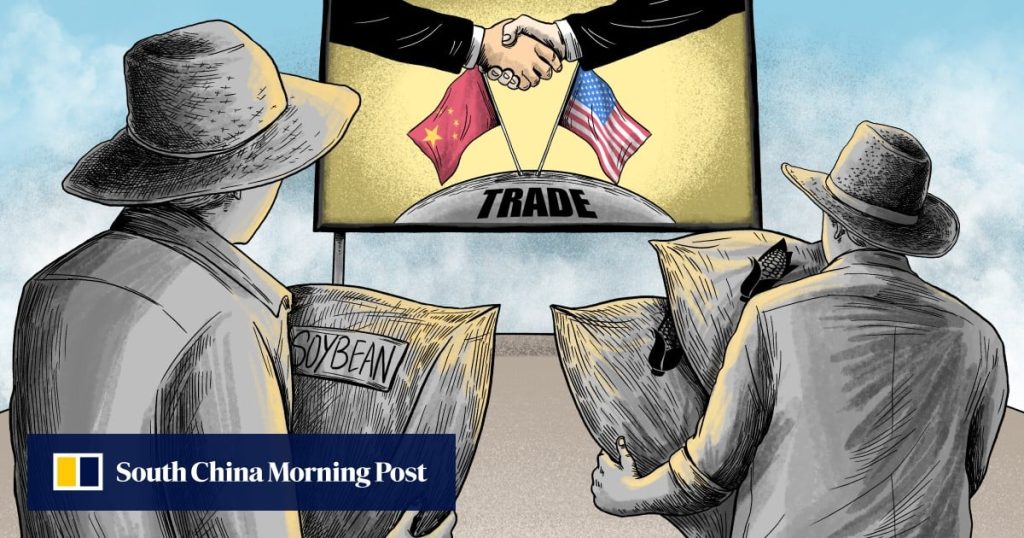There is a major divide in the American heartland.
US farm states are facing a drop in exports of key commodities as Beijing turns to alternative suppliers, primarily in Brazil, as a result of Donald Trump’s trade war.
Some farmers, however, want to give the US president the benefit of the doubt that his go-slow approach to Beijing will eventually bear fruit in the form of more orders from China as well as other trading partners.
Others fear that no combination of new markets will replace the world’s biggest importer of agricultural commodities.
Compared to its talks with some of America’s closest allies, the Trump administration’s trade negotiations with China over the past few months have been mild, measured, and allowed significant time to reach an agreement.
Whether this leads to a more permanent reset that both sides can live with remains to be seen.
Farmers who are tired of China’s “uncertainty”, “broken promises” and “manifold barriers”, and the fact that their exports are already shrinking, are not banking on China’s agricultural trade with the US, which has often been interrupted by political factors.


